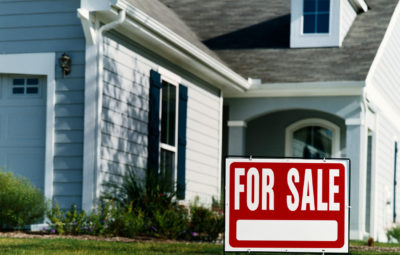There’s a question as old as time: after you retire, should you upsize or downsize? People are usually pretty split on this subject. For example, many believe that settling down in a big house makes for a much more comfortable retirement. When you live in a big house, you have the space to explore your hobbies and interests. On the other hand, a big group of people believes it’s smarter to downsize after retirement. You just won’t need that much space when you’re no longer working. So, in this article, we’ll attempt to compare these two options: downsizing vs. upsizing your home after retirement. After that, it’s on you to make the final decision!
Downsizing As An Option
Downsizing is a popular option many people choose after retirement. Downsizing basically means acquiring a smaller house than the one you currently own. It’s a popular decision, especially with empty nesters or those who no longer need or can’t afford their current home. It comes with a lot of benefits, but also with some disadvantages.
The Benefits Of Downsizing
When comparing downsizing vs. upsizing your home after retirement, we have to start by listing all the great things that come with downsizing! These are:
Owning Your Home. If you sell your house for a smaller one, you won’t need to ask for a loan. Without monthly mortgage payments, you will simply be owning your home with no added costs every month! Isn’t that amazing?
Easier Maintenance. A good thing about owning a smaller home is less maintenance! For example, if you downsize from a house with a large lawn to a smaller house with a smaller law, you will spend a lot less time mowing the grass outside. It’s the same with the inside of your home: less floor space means less floor cleaning you need to do!
Saving Money. If you move into a house that is less expensive than the one you just sold, you may use the money left over from the sale to travel or pursue new hobbies. You can use that money to do some home remodeling or home improvement projects and increase your comfort in your current home. Alternatively, you could just save the money for a “rainy day.”
Furthermore, another way you’ll save money with downsizing is by spending less on utilities. This is possible because heating and cooling a smaller home is less expensive. Moreover, powering the entire house with electricity or supplying it with water is also much less expensive if the house is smaller.
The Biggest Downside Of Downsizing
Now that we finished listing some of the main benefits, it’s time to get into the bad sides of downsizing. The main one is that by downsizing, you will have less storage space than before. If you lived in a big house your whole life, it might be hard to get rid of some of your stuff when you downsize. However, the chances are you will have to. With a smaller place comes lesser storage space. One of the ways to deal with that is to find creative ways to store your belongings. For example, an ottoman can be used to store clothes, bedding, or other similar items.
Upsizing As An Option
While upsizing your home seems like a less popular option once you compare downsizing vs. upsizing after retirement, many people still choose to do it. So, just like we broke down the biggest pros and cons to downsizing, we’re going to do the same for upsizing!
Benefits Of Upsizing
Upsizing your home has a number of advantages, including:
Accessibility Features. Not a lot of smaller houses can fit all the accessibility features you may need as time goes on. For example, homes designed for seniors typically include wheelchair ramps, bathtub grab bars, and lighting that is built with aging eyes in mind.
More Storage Space. Instead of getting rid of all the stuff you’ve accumulated over the years, you’ll now have enough storage space to store it. That is one of the biggest advantages when buying and moving into a bigger home. However, it’s important you plan ahead where all your excess stuff will go so your moving and unpacking can be an easy process. So, think of all the stuff and memorabilia you kept – now you’ll finally have enough storage space for all of it. You won’t have to get rid of any of your beloved possessions, and you can continue collecting keepsakes and souvenirs.
More Space In General. Aside from getting more storage space to keep your beloved things, you will also have more space in general. You can use it to explore new hobbies and interests. You can use rooms you don’t need as guest rooms for your grandchildren and great-grandchildren. Or, you can remodel your new house to make it into your dream home. If you choose the option to remodel, just make sure you find the best contractors you can trust.
New Neighborhood. Upsizing can provide you with the advantages of choosing a new neighborhood with a larger selection of things that can make life better, like new restaurants, stores, and parks. You also may get the chance to live in a neighborhood closer to the rest of your family and friends.
The Biggest Downside Of Upsizing
It’s expected that the biggest con of upsizing is that upsizing costs more in the long run. Not only are there higher mortgage payments as a result of upsizing, but your utility bills and maintenance costs will also rise. You will also more likely need to purchase extra furniture to fill in all the empty space, which is another added cost. While this is not a deal-breaker for most people, it’s really important to consider it when making your decision.
Final Thoughts – Rightsizing
When you compare downsizing vs. upsizing your home after retirement, there’s no simple solution. Some people just like the extra space, while others prefer to live in a smaller space but save money to use their retirement to travel and visit their family as much as possible. Since everybody has different ideas and preferences when it comes to their home, there’s no one-size-fits-all answer. Instead, there’s a new concept called rightsizing. In retirement, “rightsizing” your house means having just the amount of space you require – nothing more and nothing less. Because you’ve never been retired before, this might be quite difficult to assess. You won’t know what size house is best for you until you’re truly retired and know how much time you’ll spend at home or going to new places.
Meta: Should you downsize or upsize after retirement? We’ll compare downsizing vs. upsizing your home after retirement to help you decide!
Photo used: https://www.pexels.com/photo/man-in-brown-long-sleeve-shirt-holding-a-white-mug-7328487/








